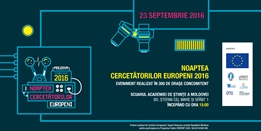Once a scientific powerhouse, Russia has experienced over the past 25 years a dramatic decline of its research and development capacities and is now lagging far behind other industrialized nations in terms of scientific output. And in the past year, Russia’s economy has suffered multiple blows, including Western sanctions following its annexation of Crimea from Ukraine and the collapse of the price of oil and gas, the principal sources of income for the government. Researchers in and outside the country have fretted about the implications for Russian research and its role in international collaborations.
In particular, Russia is a partner in the Large Hadron Collider (LHC) collaboration with CERN, the European particle-physics laboratory near Geneva, Switzerland, and contributes to several major research facilities under construction. These include the European X-ray Free Electron Laser (XFEL) in Hamburg, Germany; the Facility for Antiproton and Ion Research (FAIR) in Darmstadt, Germany; and ITER, the experimental nuclear-fusion reactor in Cadarache, France. Meanwhile, the country has embarked on a radical but controversial restructuring of the way it funds research. Nature talked to Dmitry Livanov, the Russian Federation’s minister of education and science, about the current crisis and the future of the country’s scientists.






